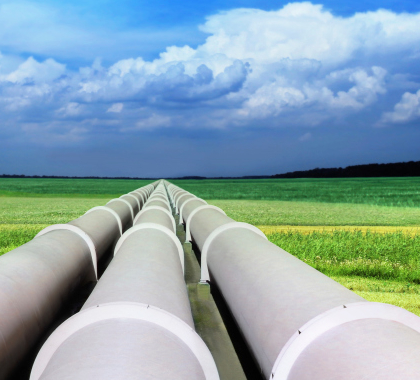The U.S. Court of Appeals for the District of Columbia granted Energy Transfer LP, operators of the Dakota Access (DA) oil pipeline, an administrative stay on a district court order requiring the pipeline to be shut down and drained by August 6.
The D.C. Appeals Court’s ruling allows DA to continue to operate at least until the court decides whether the Trump administration followed the proper procedures in granting the permits issued for an approximately mile-long stretch of the 1,127-mile pipeline beneath South Dakota’s Lake Oahe.
Costly Shutdown Reversed
On July 6, U.S. District Judge James Boasberg, of the U.S. District Court for the District of Columbia, vacated a Clean Water Act permit issued in 2017 by the U.S. Army Corps of Engineers allowing the final section of the DA pipeline to be completed and the pipeline to begin operating. Boasberg ordered Energy Transfer to close and empty the pipeline by early August.
Energy Transfer appealed Boasberg’s ruling to the D.C. Court of Appeals, arguing the permits were properly issued and it would take at least three months and cost the company at least $27 million to drain the pipeline completely.
Company: Initial Ruling Was Wrong
Boasberg’s decision not just to rescind a previously approved permit but to order the pipeline drained is highly unusual. Energy Transfer issued a statement saying the decision is bad for the economy and wrong as a matter of law.
“Shutting down this critical piece of infrastructure would throw our country’s crude supply system out of balance, negatively impact several significant industries, inflict more damage on an already struggling economy, and jeopardize our national security,” said a company statement issued when it announced it was appealing the decision. “This was an ill-thought-out decision by the Court that should be quickly remedied.
“We believe that the ruling issued … from Judge Boasberg is not supported by the law or the facts of the case,” the company said.
The $3.8 billion pipeline, running from the Bakken shale fields in North Dakota where oil is produced to distribution and refining infrastructure in Illinois, has transported millions of barrels of oil, at 570,000 barrels per day, since it first began operating in 2017. In addition to the cost of draining the pipeline, Energy Transfer says closing the pipeline will cost the company as much as $3.5 million each day the pipeline is offline, amounting to approximately $1.4 billion in losses if the line remains shuttered throughout 2021.
The Court of Appeals’ stay on Boasberg’s order has offered the pipeline at least a temporary reprieve, allowing DA to continue operating during the appeal process.
Sterling Burnett, Ph.D. (hsburnett@heartland.org) is the managing editor of Environment & Climate News.


























